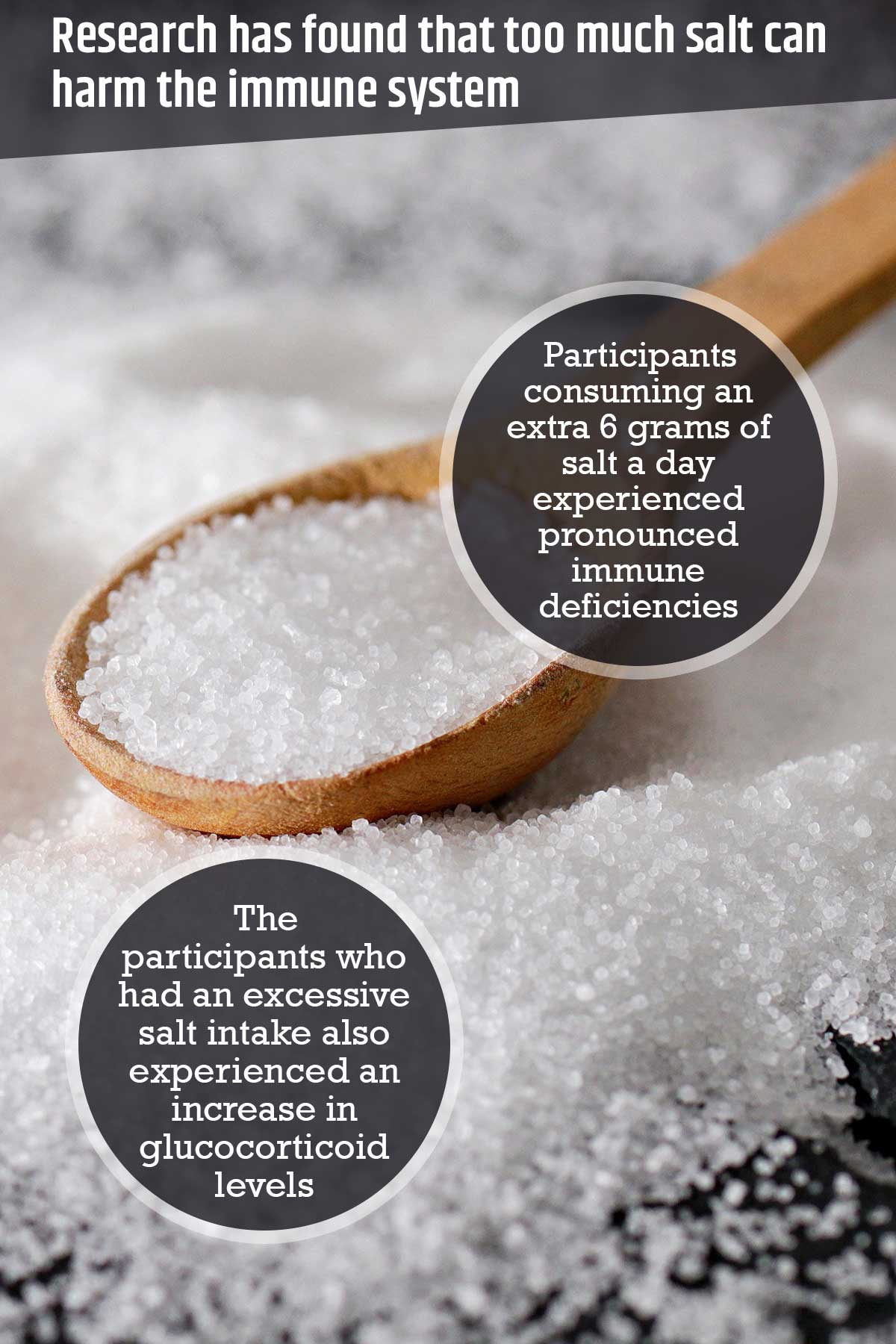Research has found that besides being bad for blood pressure, a high salt diet is also bad for the immune system. Mice suffered from more bacterial infections of greater severity after being given a high-salt diet.1✅ JOURNAL REFERENCE
DOI: 10.1126/scitranslmed.aay3850
Human volunteers consuming an extra 6 grams of salt a day experienced pronounced immune deficiencies. This amount is equivalent to the salt content of 2 fast food meals.
According to the WHO’s recommendations, the maximum amount of salt individuals should consume every day is 5 grams, which is about 1 level teaspoon. In reality most of us are exceeding this amount considerably.
Although the study results prove that excessive salt intake can significantly weaken an important part of the immune system, some physicians have suggested the opposite. A study found that lab animals infected with parasites heal faster on a high-salt diet as the immune cells that eat the parasites are more active when salt is present. It was then incorrectly concluded from this study that sodium chloride enhances immunity.
The current research proves that this generalization is not accurate for two reasons. Firstly, the concentration of salt in the blood and in the various organs is kept for the most part constant to prevent the impairment of important biological processes.
The major exception being the skin as it functions as the body’s salt reservoir and is why additional sodium chloride intake works so well for certain skin diseases.
The other parts of the body aren’t however exposed to the additional salt consumption. The kidneys instead filter the salt out and is then excreted in the urine.
The 2nd mechanism now plays a part, which is that there is a sodium chloride sensor in the kidneys that activates the salt excretion function that has an undesirable side effect.
The sensor also results in the accumulation of so-called glucocorticoids in the body, which in turn inhibit the function of granulocytes, which are the most common kind of immune cell in the blood.
Unlike the macrophages that attack parasites, granulocytes are scavenger cells that attack mostly bacteria. Infections progress a lot more severely if granulocytes do not function optimally. The researchers demonstrated this in mice that had a listeria infection.
Some of the mice had previously been given a high-salt diet, and the researchers counted 100 to 1,000 times the amount of pathogens that cause disease in the spleen and liver of these mice. These high-salt diet mice also experienced slower healing of the urinary tract.
The researchers also investigated how sodium chloride affects the human immune system. Human volunteers who consumed an additional 6 grams of salt daily intake were examined. Six grams is about the amount found in 2 fast food meals.
The researchers tested the volunteers’ blood samples after a week and found that the granulocyte immune cells did not cope as well with bacteria after they had started to eat a high-salt diet.
The human volunteers who had an excessive salt intake also experienced an increase in glucocorticoid levels. It’s not surprising at all that this inhibits the immune system as the most common glucocorticoid cortisone is usually used for suppressing inflammation.



